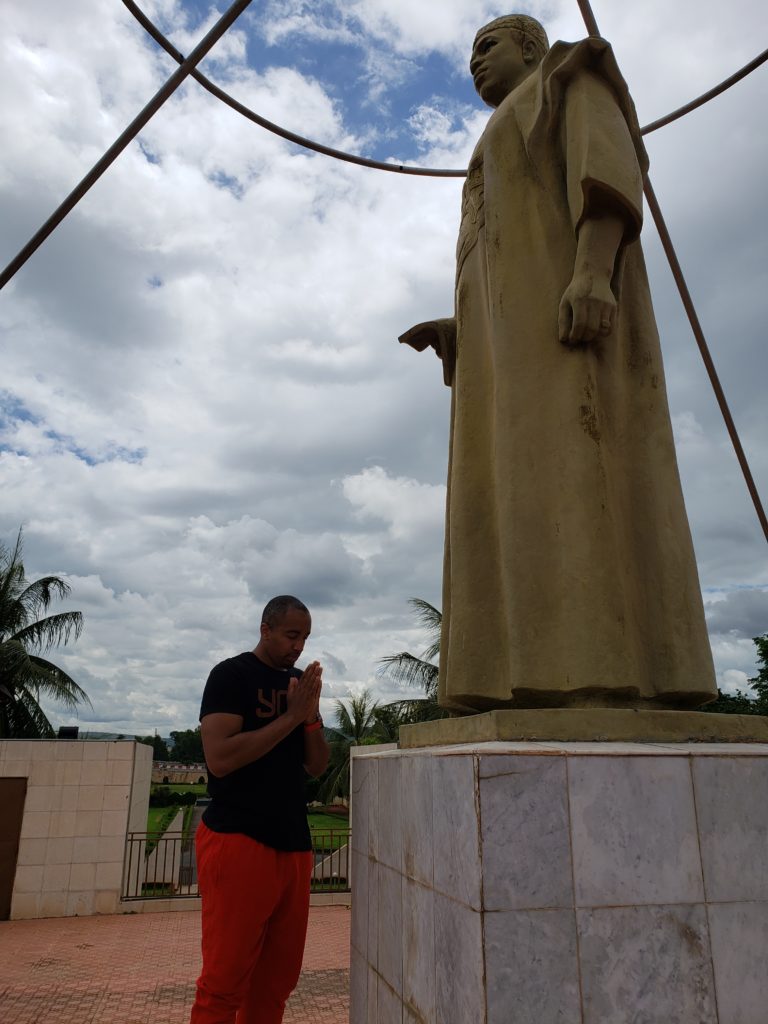When Drake Reid traveled overseas to play professional basketball in France, he was taken aback by the fact that some of his teammates had never heard of racism.
“The majority of my teammates were born and raised in Africa,” said Reid, “They would ask me questions about the states, and as an African American player, I had a lot of questions for them because I noticed a lot of different tradition and behaviors what were totally different than anything I’ve ever seen.”
But there was one question, in particular, that changed everything for Reid.
“One of my teammates asked me, ‘what is this racism thing I keep hearing about?’ I remember just being totally stunned that someone from West Africa didn’t know what racism was in the way we know it,” he added. “I started breaking it down to him and he replied, ‘man, that sounds terrible.'”
Reid couldn’t help but to think about what would life be like if he didn’t know about slavery and racism, and what boundaries and restrictions would be lifted that he placed on himself?
These questions are what sparked Reid’s interest to find out more about his history.
“Not knowing my origin is like having a deficit. It put me at a disadvantage,” he said.
So, he set out on a journey to change that.
RELATED: Two-Black Owned Companies To Help You Track Your African Ancestry
The Process of Discovery
After taking a DNA Test, Reid found out that he was from the Mandinka Tribe, or Malinke: a West African ethnic group that is primarily found in southern Mali, eastern Guinea and northern Ivory Coast.
He had some time in his schedule and contemplated on visiting both Mali and Senegal. He prayed about it and went on about his day.
A week later, he stumbled upon a West African store in Paris. The owner of the store was surprised about Reid’s knowledge of people and artifacts from the Motherland. The man proceeds to tell Reid, “and when you go to Africa, just know it’s going to be a powerful experience.”
“He also told me, ‘don’t think it’s by chance that you came here today,’ and then he pointed his right hand toward the wall, adding, ‘the ancestors sent you an invitation.'”
Reid accepted and went to Senegal first.
“That trip was powerful but when I went to Mali, that hit me. I can’t explain it, but something just came over me […] I knew I was in the right area,” he said.
He went on to meet a chief who started breaking down the history of the Mandinka Tribe and learning so much about himself that he wished he would’ve known years before.
“I remember being 10-years-old in a classroom and teachers would start telling some students about how great their history was and then for us, they would start us off at slavery. I remember how that made me feel and that day I was with the chief, and him telling me my true history, all of those negative things were replaced with things that were 10 times more powerful than I ever heard.”
A Full Circle Moment
On his last day in Mali, one of Reid’s former teammates called and told him to meet up with his former basketball coach. Reid was hesitant because he put basketball aside as the trip was supposed to solely be about researching his roots.
He went anyway.
The coach asked him more about his trip to Mali, and Reid explained that he was there to trace his origins. The coach, amazed at his commitment, asked, “and you can prove that?”
Reid replied, “yes.”
The coach explained to Reid that he was gearing his team up to play in a national team tournament and asked, “would you like to play with us?”
“I was stunned. I had a chance to play for my ancestors,” Reid added. “It was at that moment that any doubt I had about being in the right place or not, was over.”
He had to submit his proof of genealogy before everything was final. When he finally got approved and played in the tournament in Tunisia, he was supposed to wear a jersey with his last name Reid on the back, but the manufacturer got the number wrong. The only jersey available to play in was the one he got as a gift and keepsake.
“I actually wore the jersey with my Malian-last name ‘Keita’ on the back, which paid homage to my ancestors.
Reid is now helping others to trace back their possible origins through his company Sankofa Global Exchange. You can find out more on the company’s website.







